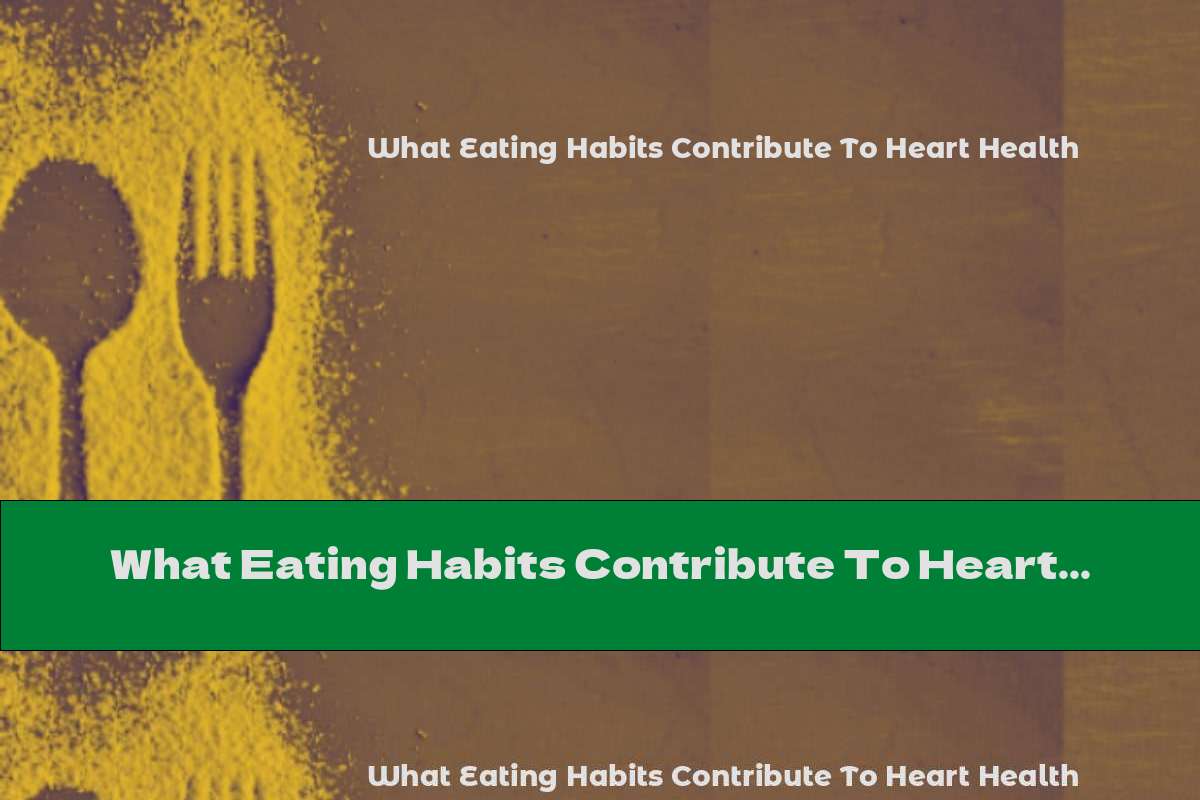What Eating Habits Contribute To Heart Health
 Author: Nia Rouseberg
Time for reading: ~3
minutes
Last Updated:
February 21, 2026
Author: Nia Rouseberg
Time for reading: ~3
minutes
Last Updated:
February 21, 2026

When it comes to health risks that lead to premature death, cardiovascular disease is the most common for both men and women. But there is good news: you can do a lot on your own to prevent them (we're talking about lifestyle and diet), even if you have a family history of heart disease. Let's find out more.
When it comes to health risks that lead to premature death, cardiovascular disease is the most common for both men and women. But there is good news: you can do a lot on your own to prevent them (we are talking about lifestyle and nutrition), even if there are cases of heart disease in your family . Let's find out more.
Even a few servings of dark leafy greens make a difference
Greens—kale, chard, spinach—are often singled out for their role in reducing inflammation, which is a big support for the heart . And even a few servings a day or a week can make a difference, according to the American Heart Association.
The study looked at data from more than 50,000 men and women. As a result, scientists found that those who ate foods rich in vitamin K, such as leafy greens, had a significantly lower risk of atherosclerotic cardiovascular disease than those who did not consume it. Foods high in vitamin K also include broccoli, beef, liver, hard cheeses, and avocados.
An interesting aspect of the study is that individuals who ate much more of these foods did not reduce their risk of cardiovascular disease more effectively. That is, increasing the portion did not give any advantages. It is more important to consume moderate portions of food with vitamin K on a regular basis.
A moderate reduction in calories is better than too drastic
Although a significant reduction in the caloric content of the diet can lead to weight loss (as we know, not long-term), for the health of the heart it is better to choose a softer strategy.
According to a study published in the journal Circulation, people who reduced their caloric intake by 200 kcal from normal and followed this amount for 20 weeks while adding exercise to their daily routine had a significant change in aortic stiffness.
This is a key indicator of cardiovascular function, which is very important for preventing heart disease . Study participants who reduced their daily caloric intake by 600 kcal actually saw no change, proving that more is not better.
It's never too early to start
Most people think about cardiovascular disease prevention at a more mature age - logically, since the risk increases with time. But eating right and living a healthy lifestyle at a young age can pay off for decades to come. A study by the American Heart Association, which looked at the effect of eating habits on people aged 18 to 30 years, found that following a plant-based diet in this age range was associated with a lower risk of cardiovascular disease . The diet should contain a sufficient amount of fruits and vegetables, nuts, legumes and whole grains.
The benefits of the diet can be increased by limiting the consumption of foods with a high content of salt, added sugar and trans fats, experts add.
Related Articles
- The Power of Honeysuckle: Health Benefits and Recipes
- The Ultimate Guide to Hickory Smoked Bacon in Nutrition and Healthy Eating
- Nutritional Benefits of Fruit Skewers in Honey Syrup: A Delicious and Healthy Recipe
- Nutritional Benefits of Fruit Skewers in Honey Syrup: A Healthy and Delicious Snack
- Nutrition for Respiratory Health: Supporting Your Lungs with the Right Foods
Top Nutrition Articles Today
- . The Latest Food Pyramid: A Guide to Balanced Nutrition
- . Nutrition Guide: Importance of Food Pyramid, Meal Planning,...
- . The Role of Hydrochloric Acid in Digestion: A Comprehensive...
- . Libre2 Sensor Reset: Extending the Life of Your Glucose Sens...
- . The Power of Chalk in Nutrition: Benefits, Recipes, and Tips
- . All You Need to Know About E471 in Food: Functions, Foods, H...
- . The Essential Macronutrients of Beans: Protein, Carbs, Fiber...
- . The Nutritional Benefits of Quail: A Protein-Rich Superfood
- . List of Foods that Contain Carrageenan: A Guide to Avoiding...
- . Ascorbyl Palmitate: Benefits, Uses, and Precautions